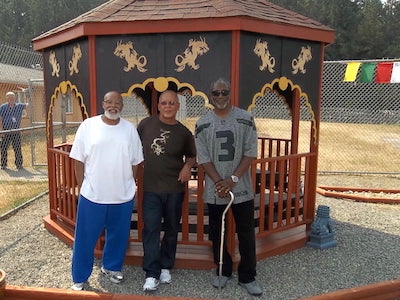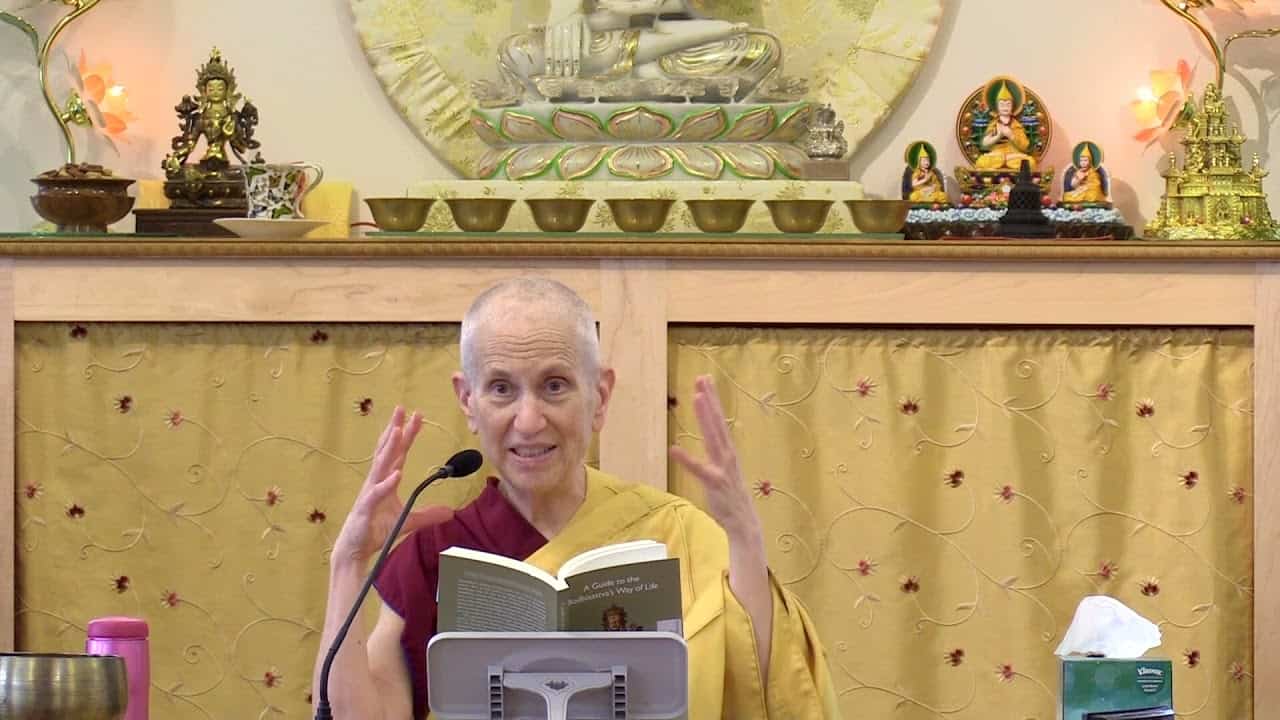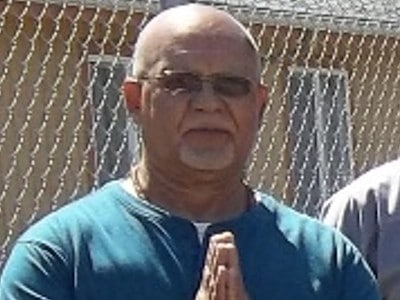Time, inspiration, and gratitude

Venerable Chodron first met Calvin in 2007. They corresponded and Venerable Chodron also got to know him when she spoke to the Buddhist groups at two of the prisons where he resided. Calvin is a leader, organizing the Buddhist groups in prison, and an author. As time went on, they had the idea to co-author a book specifically to help incarcerated people, entitled Unlocking Your Potential. In the following piece, Calvin speaks of the help he received from Buddhist teachers and groups while incarcerated.
Time. It is something that we all experience. For the child waiting for Christmas, time seems to drag on and on forever. For the person on vacation, time may pass too quickly. Everyone experiences time differently and at different moments depending on the situation they find themselves in. Prisoners “doing time” know all about time. For many incarcerated folks, time moves along at a snail’s pace. However, for those involved in programs like work and education, time seems to just fly by. For the man facing execution, time passes in a flash while the tick of the clock measures out each second before the end. Yet time is an illusion. We measure time on a 24-hour clock but the universe doesn’t care. We all pass from yesterday to tomorrow. Our past is part of our existence today and our future is part of our past. Together they create our living moment.
That’s the philosophy that helped me to navigate through 27 years of incarceration and come away from the experience a better and more balanced individual. Though change is “an inside job,” no one exists without external influences or help. For me that came in the form of Buddhism. Not just because of the wonderful teachings of Buddha or the practice of meditation or mindfulness – these helped tremendously – but much of my current mindset is the result of exposure to Buddhist teachers and lay practitioners. They opened the door for me to understand the power of love, understanding, and compassion and these are the people I credit my success and happiness to.
Teachers like Rev. Rowan Conrad, Venerable Sunyana Graef, Rev. Vanja Palmers, Ilsang Jackson, Lama Inge Sandvoss, Ken and Visakha Kawasaki, Venerable Wongmo, Venerable Chodron and Venerable Tarpa, Rev. Genko Blackman, Lama Padma, and the Tzu Chi Foundation all donated resources and thousands of hours to visit, teach, and communicate with prisoners.
This level of devotion and kindness is best exemplified by Venerable Thubten Chodron and Sravasti Abbey. For over 20 years Venerable Chodron and the teachers and nuns at the Abbey visited various prisons to conduct retreats, display relics, or to bring in special guests from Tibet and around the country. They provided books and encouraged everyone to practice loving kindness while gently encouraging each practitioner to examine past harmful behaviors by offering teachings as tools to facilitate change.
On one occasion Venerable Chodron brought a guest to a prison I had been detained at for several years. The guest was a Tibetan teacher who as a young monk was imprisoned by the Chinese and held for over 20 years in a small box-like cell with no windows, unable to stand upright or communicate verbally with others. Despite no toilet, adequate food, human contact or other comforts he managed to deepen his practice and learned to communicate with the other monks imprisoned all around him by developing a system of taps and sounds to share teachings and encouragement. All the Buddhists in our prison assembled in a large room to wait for this special guest and when he did, the atmosphere in the room changed immediately. He was bent to the side and walking with a pronounced limp from all the years of abuse and living in a cramped space. Up to this moment I was eagerly awaiting whatever he was prepared to impart expecting something impactful and I was not disappointed. As soon as he was seated before us he beamed the most radiant smile ever, looked around and said; “You all are fat”! I was stunned but laughed with everyone else. I do not remember all that he said 17 years ago but I remember that statement. He was right. We all were well fed compared to what he had experienced in that tiny box of a prison that he barely survived. But that was not what he was really to relay. Comparatively we were living well. We have three meals a day, TVs in our rooms, a mattress, we are warm and have programs to partake in, and so much more. Something about this man inspired me beyond anything I had experienced before. I felt that if he could go through the torture that he had experienced and still maintain such a positive outlook and do positive things like voluntarily going back into a prison to help others, well, maybe I could too.
Over the years since I’ve had the honor to be able to help establish viable Buddhist practice in Washington prisons and tried to help dozens of men and women with their practice and with reentry after prison. While detained in one facility we designed and built a pagoda so that our sangha could have a place to practice instead of the storage room we used for years. At the time it was the only stand-alone structure in any place of detention in America devoted exclusively for Buddhist practice. We did allow individuals who were not part of our sangha to utilize it when distressed or in need of quiet solitude. At the same time Venerable Chodron challenged our sangha to answer hundreds of questions about our perspectives, behaviors, attitudes regarding offending, our conduct and several other topics. As we progressed through these questions over the course of two years we ended up doing a lot of self examination. The idea of using the results in a book came up and eventually resulted in collaboration for a book. These are just two examples of how much the support and influence of teachers like Venerable Chodron and all those connected with Sravasti Abbey impacted my life and the lives of thousands of prisoners.
I cannot easily separate my experiences with doing time in prison and my success today. The past has a tendency of becoming the present sometime in the future and that future has a place in the past. I do know that the teachings and dedication I witnessed from people like Venerable Chodron and all those affiliated with Sravasti Abbey made a difference in my life and motivated me to do my best not to be the source of suffering. For me, that is enough.
Calvin Malone
Calvin Malone was born in Munich, Germany, in 1951 to a German mother and an African-American father. At the age of seven he and his family moved to Monterey, California, and Calvin entered the second grade, speaking only German. Within a year he was fluent in English. Calvin attended Walla Walla Community College and studied European History. He also traveled extensively throughout Europe. Calvin began practicing Buddhism soon after he entered prison in 1992 and started writing about his prison experiences shortly thereafter. He has published numerous articles in Buddhist magazines and newsletters. He was instrumental in developing a post-prison transitional program and makes malas (prayer beads) for Buddhist prisoners around the country. He co-authored the book <a href="https://thubtenchodron.org/books/unlocking-your-potential/"Unlocking Your Potential with Venerable Thubten Chodron.


